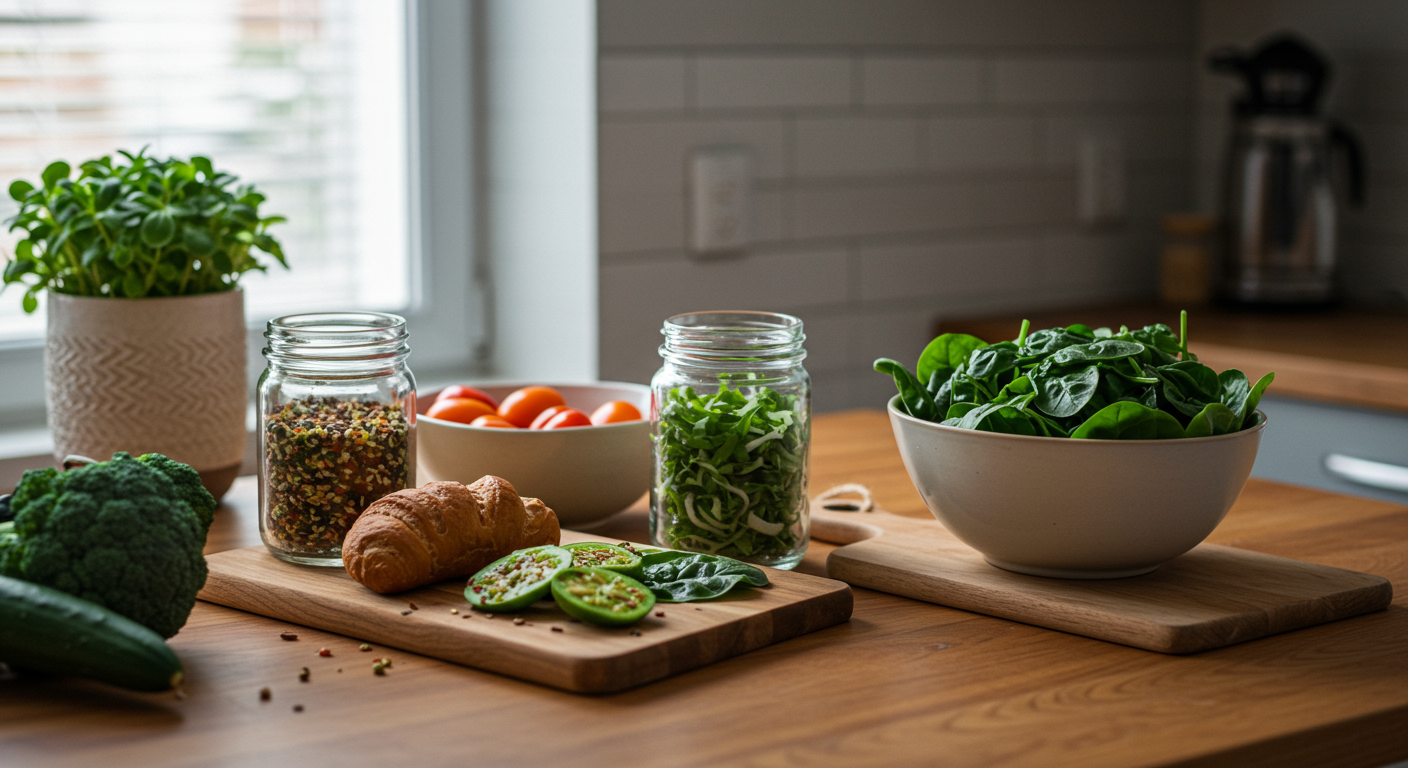Embracing a vegan lifestyle is a powerful step towards a more ethical and compassionate world. But for experienced vegans, the journey often extends beyond the plate. This guide dives deep into sustainable vegan living, offering advanced strategies and insights to minimize your environmental footprint and maximize your positive impact on the planet. It’s time to elevate your vegan journey beyond the basics and explore how your choices can create a truly sustainable lifestyle, from eco-friendly product selection to zero-waste practices.

Deep Dive into Sustainable Veganism for Experienced Vegans
As an experienced vegan, you've already made the crucial shift to a plant-based diet. Now, let's take it further. Sustainable veganism is about making conscious choices that align with environmental responsibility. This includes reducing waste, supporting ethical brands, minimizing your carbon footprint, and advocating for a healthier planet. It's about recognizing that your lifestyle has a ripple effect, and every choice matters.
Advanced Strategies and Insights
- Zero-Waste Kitchen: Reduce your kitchen waste by composting food scraps, using reusable containers for storage, and buying in bulk. Look for package-free options at your local grocery store and consider making your own cleaning products. This small change has a huge effect. Consider using a Vitamix Blender to make your own nut butters or plant based milks, which reduces packaging waste.
- Ethical Fashion Choices: Research and choose clothing and accessories made from sustainable materials like organic cotton, linen, or recycled fabrics. Support brands that prioritize fair labor practices and ethical sourcing. Look for certifications like GOTS (Global Organic Textile Standard).
- Sustainable Home Practices: Implement energy-efficient appliances, reduce water usage, and choose eco-friendly cleaning products. Consider investing in solar panels or other renewable energy sources to power your home. Choose plant-based and cruelty-free cleaning products, such as Dr. Bronner's.
Optimizing Your Vegan Home
- Sustainable Cleaning: Explore plant-based, cruelty-free cleaning products. Look for brands with sustainable packaging and refill options. This reduces your exposure to harsh chemicals and minimizes plastic waste.
- Energy Efficiency: Swap out old light bulbs for energy-efficient LEDs. Unplug electronics when not in use to reduce phantom energy consumption. Consider a smart thermostat to optimize your heating and cooling.
- Water Conservation: Install low-flow showerheads and toilets. Fix leaky faucets promptly. Collect rainwater for gardening. These small changes significantly reduce your water footprint.
- Eco-Friendly Furniture: Choose furniture made from sustainably sourced wood or recycled materials. Avoid furniture treated with harmful chemicals. Look for brands that prioritize ethical production.
Case Study: Thriving on an Advanced Vegan Path
Meet Sarah, a long-time vegan who has integrated sustainability into every aspect of her life. Sarah's journey began with a simple shift towards buying in bulk and using reusable shopping bags. Over time, she transformed her home into a zero-waste haven, from making her own cleaning products to composting food scraps. Sarah actively supports ethical brands and advocates for environmental causes, inspiring others to embrace a more sustainable lifestyle. This is proof that any vegan can make an impact!
Navigating Complex Vegan Challenges
- Ingredient Sourcing: Research the origin of your ingredients. Support local and organic farms whenever possible. Be mindful of the environmental impact of imported foods and packaging.
- Transportation: Opt for public transportation, cycling, or walking whenever possible. Reduce air travel and offset your carbon footprint when you fly. Support companies committed to sustainable transportation practices.
- Waste Reduction in Social Settings: Bring your own containers and utensils to events. Politely decline single-use plastics. Educate friends and family about sustainable practices and lead by example.
Integrating Advanced Vegan Practices
- Advocacy: Use your voice to support environmental causes and advocate for policy changes. Share your knowledge and inspire others to embrace sustainable practices.
- Community Engagement: Join or create a local vegan community. Support vegan businesses and organizations that prioritize sustainability. Volunteer your time to environmental causes.
- Continuous Learning: Stay informed about the latest advancements in sustainable living. Read books, attend workshops, and follow blogs and social media accounts dedicated to sustainable veganism.
Expert-Level Vegan Living Insights
- Embrace Minimalism: Declutter your home and life, and focus on experiences over possessions. Minimize your consumption habits and prioritize quality over quantity.
- DIY Projects: Learn to make your own cleaning products, cosmetics, and food items. This reduces waste, saves money, and gives you control over the ingredients you use.
- Continuous Improvement: Sustainability is a journey, not a destination. Continuously evaluate your practices and strive to make improvements. Stay informed and adapt your approach as new information and technologies emerge.